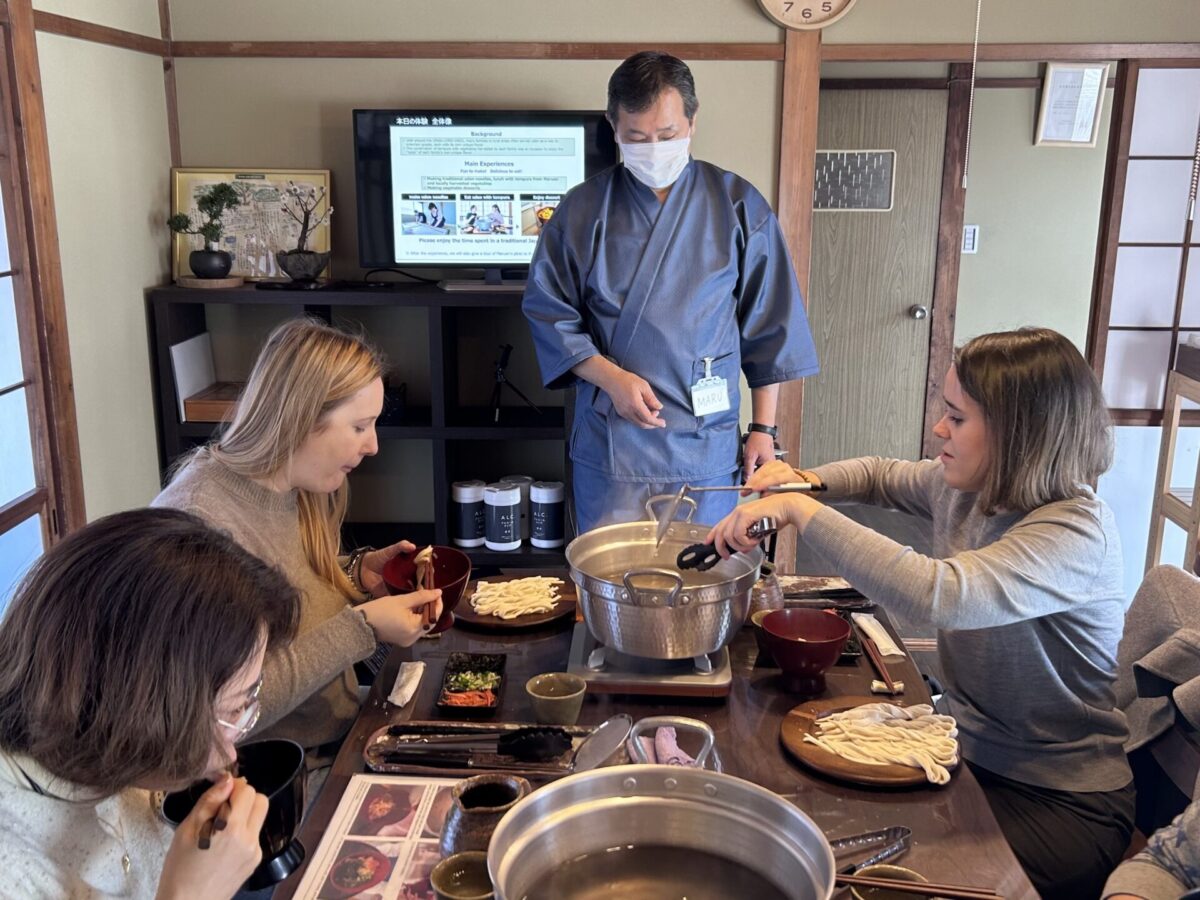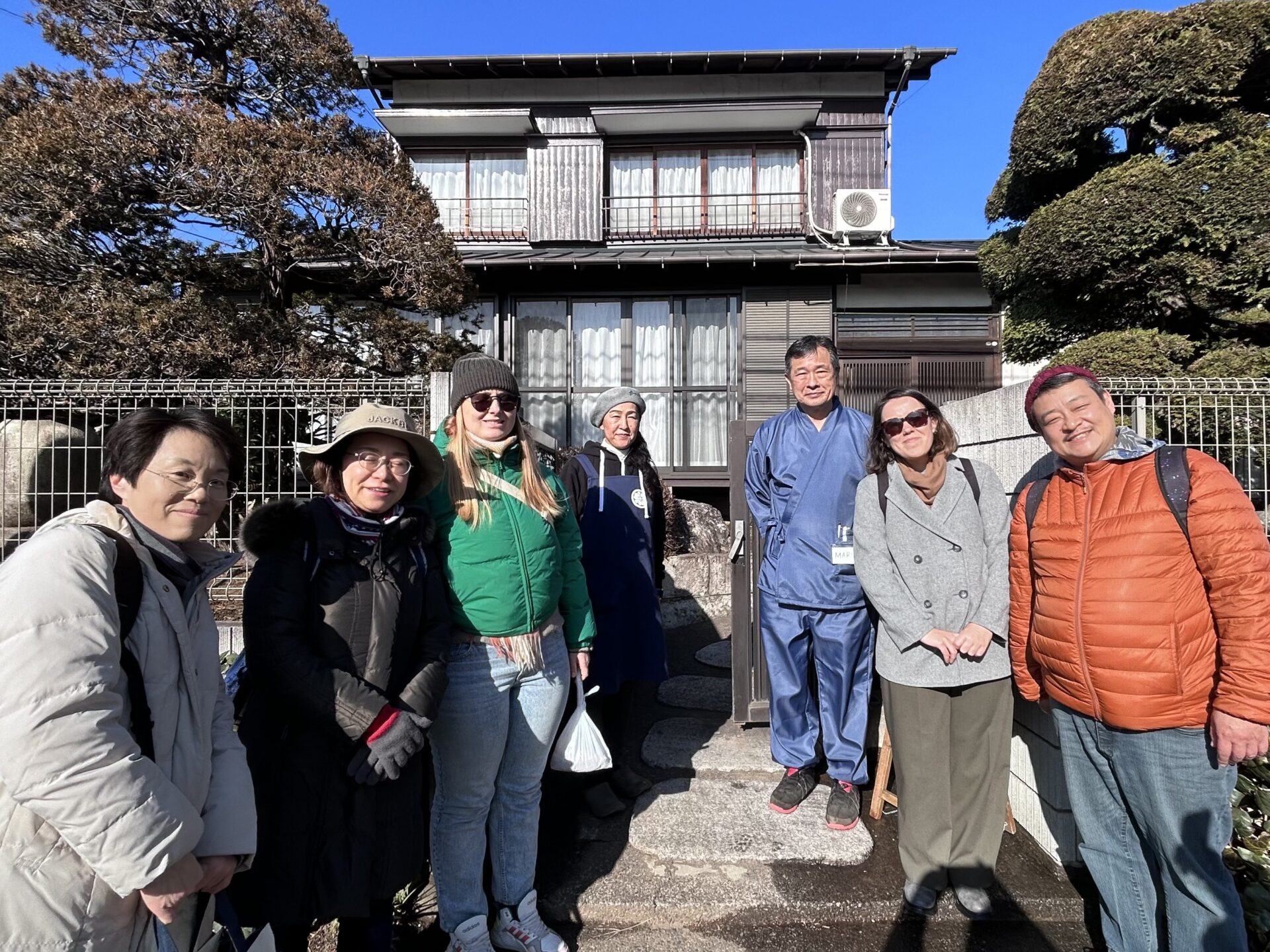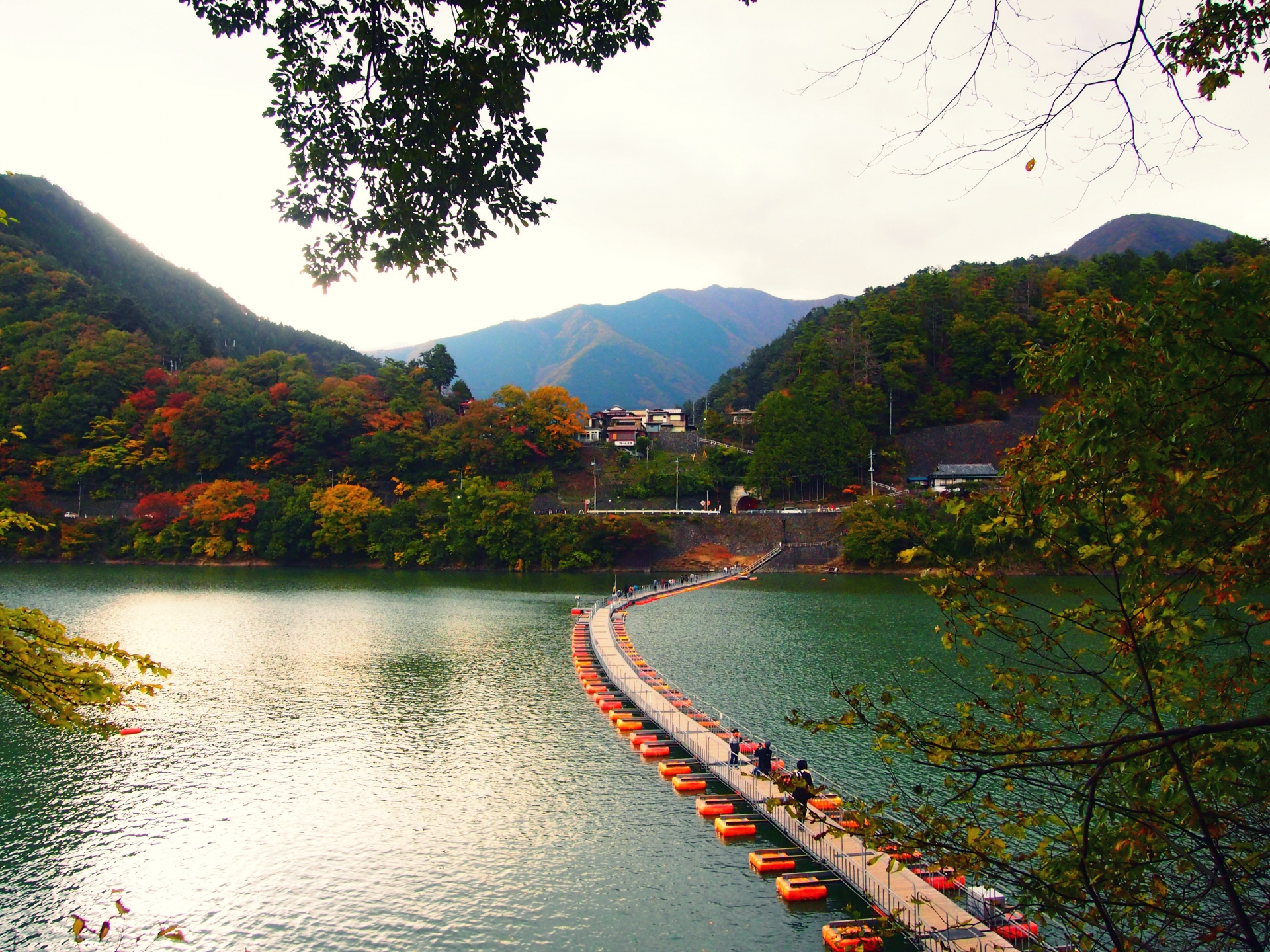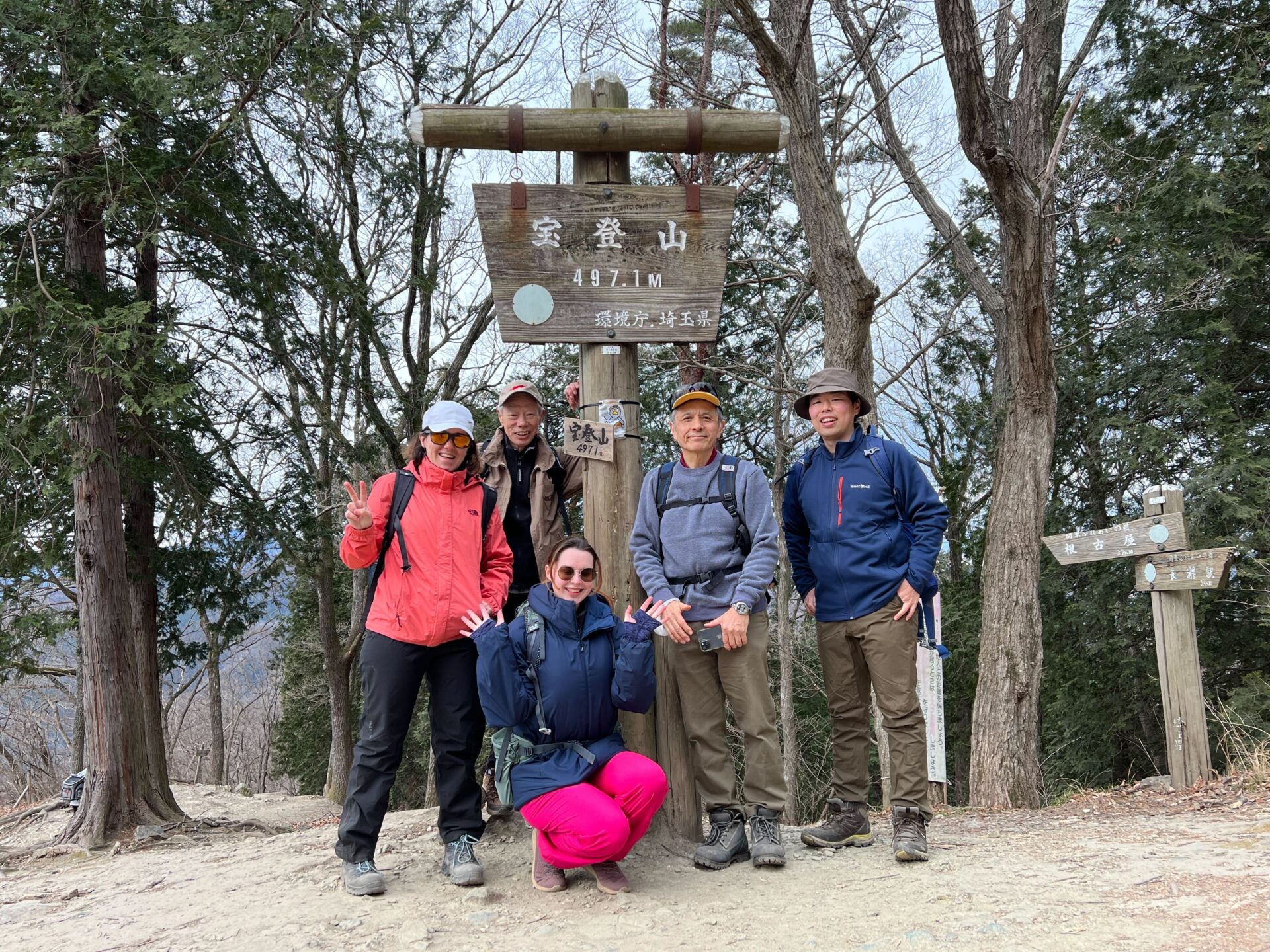Omiya, located only about an hour via train and bus, is home to the Maruen Farmhouse. It has been running for around 380 years and is the location where this Udon Making Experience is held.
Omiya is located within Saitama, which is generally known for its wide variety of distinct udon noodles. The varieties are rooted in the local culture and are enjoyed on various occasions from daily meals to ceremonies like weddings and funerals. From handmade tradition to B-class gourmet, there are many ways to enjoy udon here.
In the past, wheat and buckwheat were cultivated in areas where the cultivation of rice was difficult due to climate and topography, making soba and udon a staple food in various households. Nowadays, most people enjoy these noodles in ready-made varieties from supermarkets or at restaurants, while older families still make their own noodles. The grandmother of the Maru family still makes the udon noodles from scratch and serves them to family and friends at gatherings.
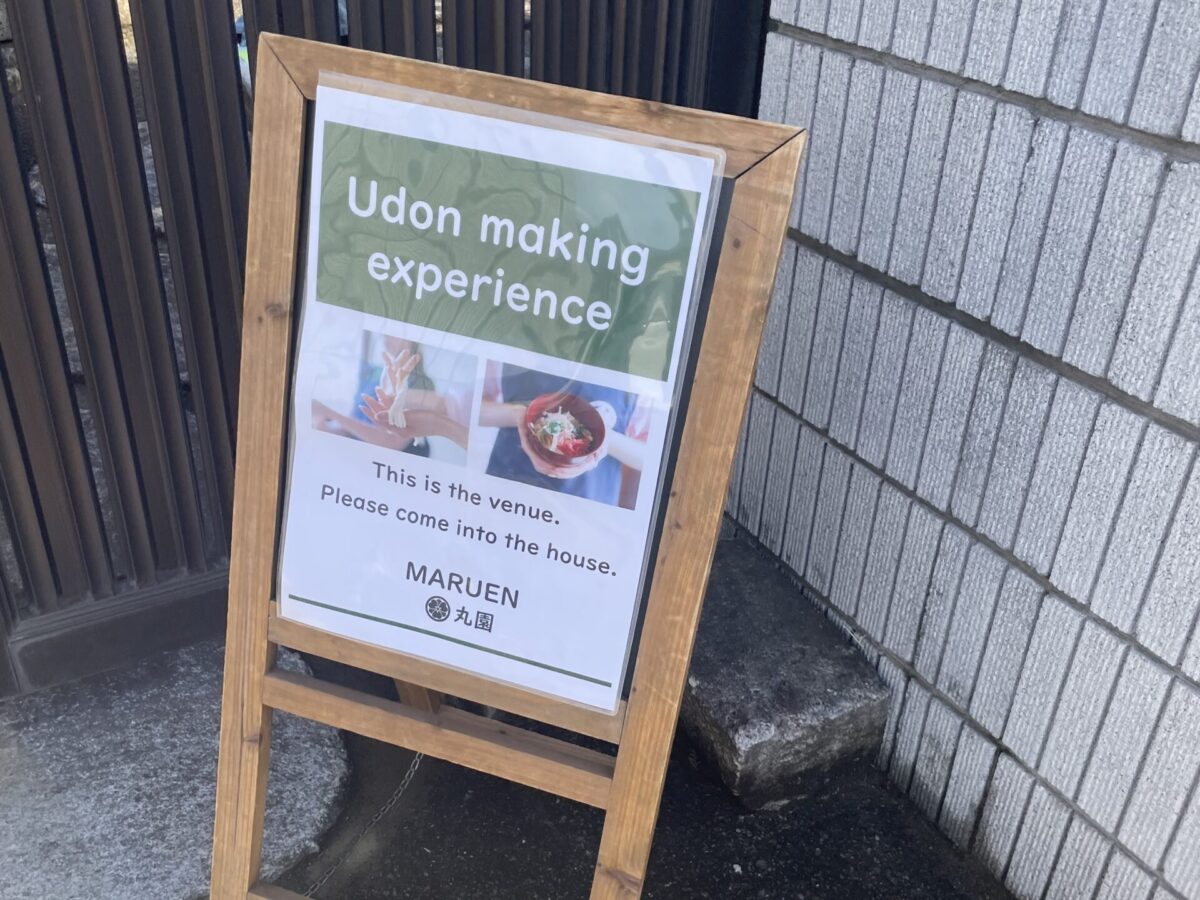
What is Maruen?
Maruen is well known for its pesticide-free vegetables. Not only that, Maruen also grows tea leaves, and offers tea-roasting tours, udon-making workshops, and even bonsai-making tours!
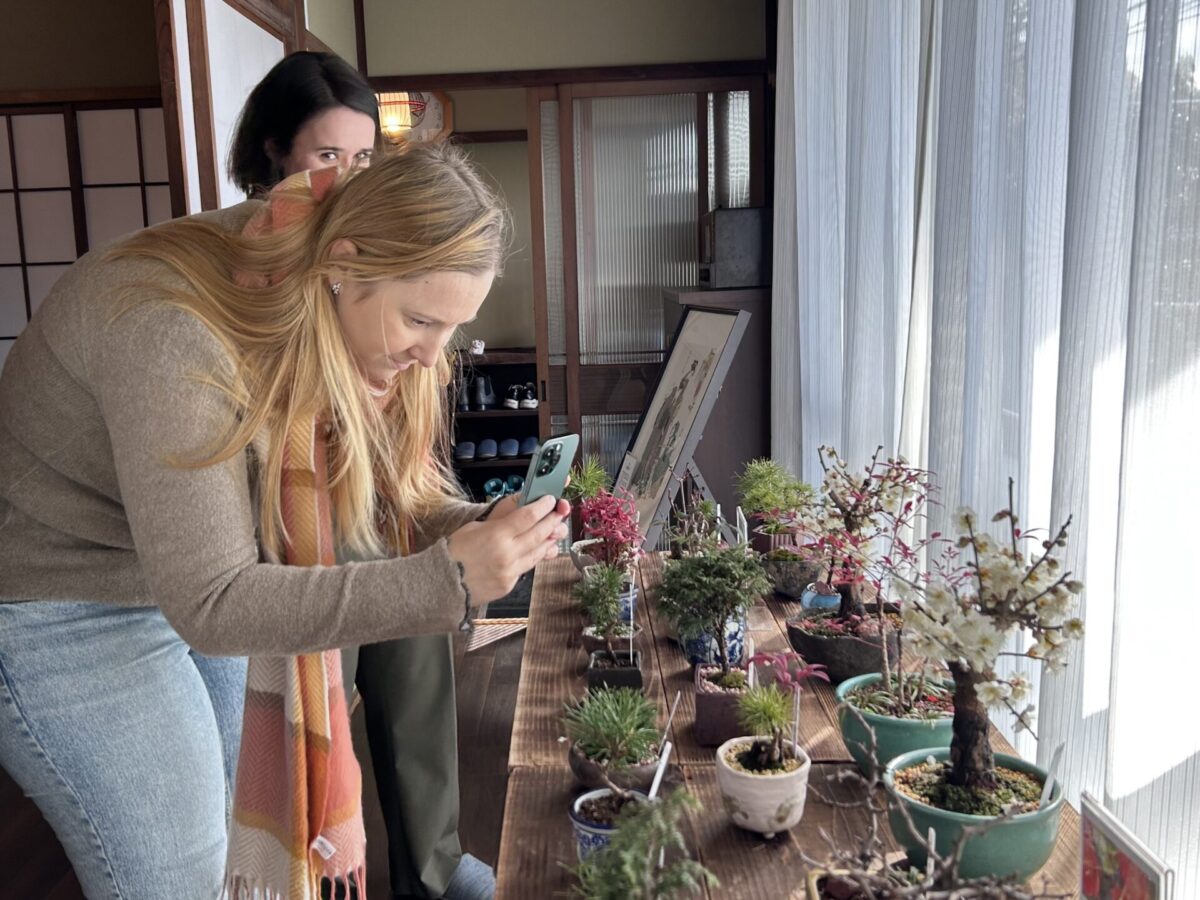
Udon Noodle Making Process
We head to the traditional house and the workshop takes place on the second floor of the building. Maru-san makes the dough the day before the tour so it is ready for guests to knead, stretch, and cut into noodles on the day of the event. The dough is made from flour, salt, and water to bring out the stickiness of the gluten. It is then rolled into a dumpling shape, put into a plastic bag, and left to rest overnight. The process really brings out the fluffy texture to the dough.
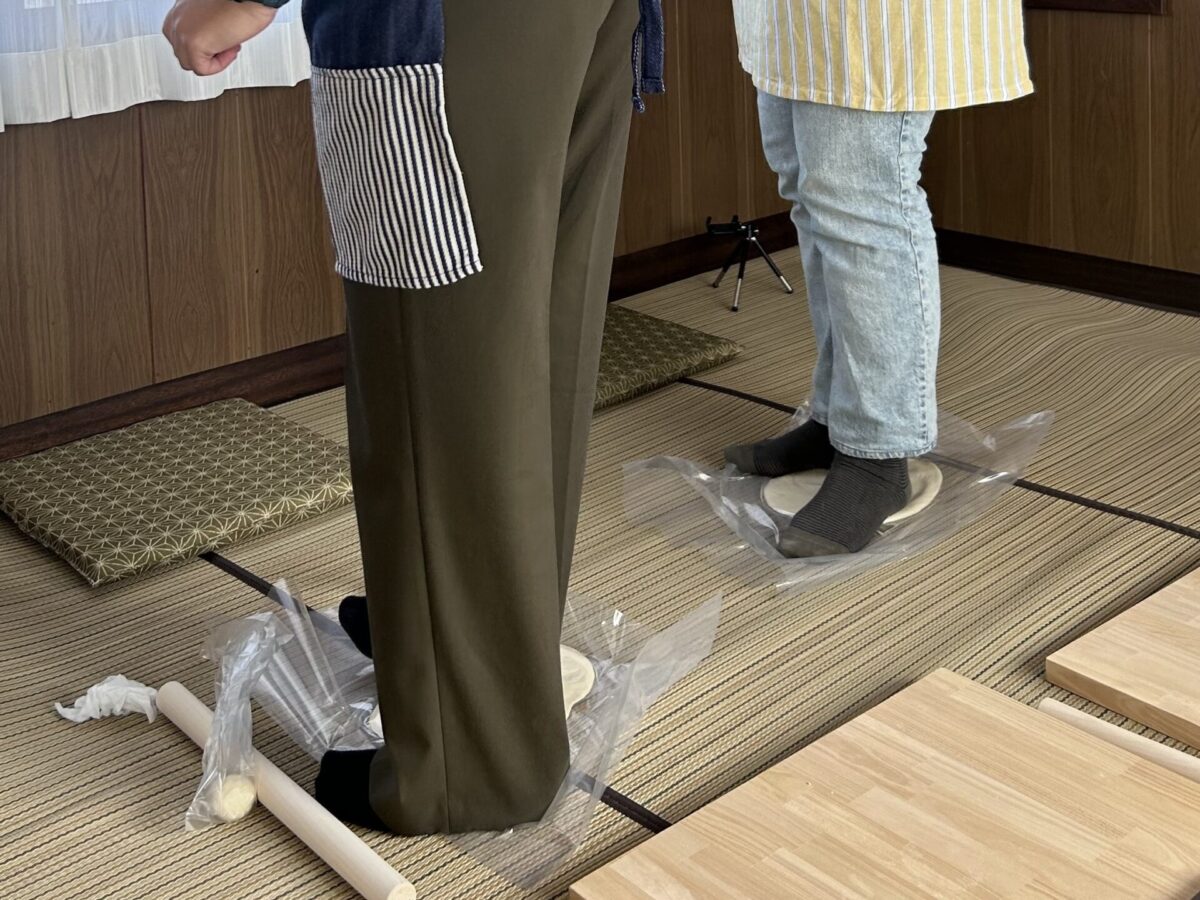
The noodle-making process starts with kneading the dough in the plastic bag, using both feet to flatten it. Heels are used strongly to get the dough flat, is rolled back up, and flattened again. This process is repeated about 5 times.
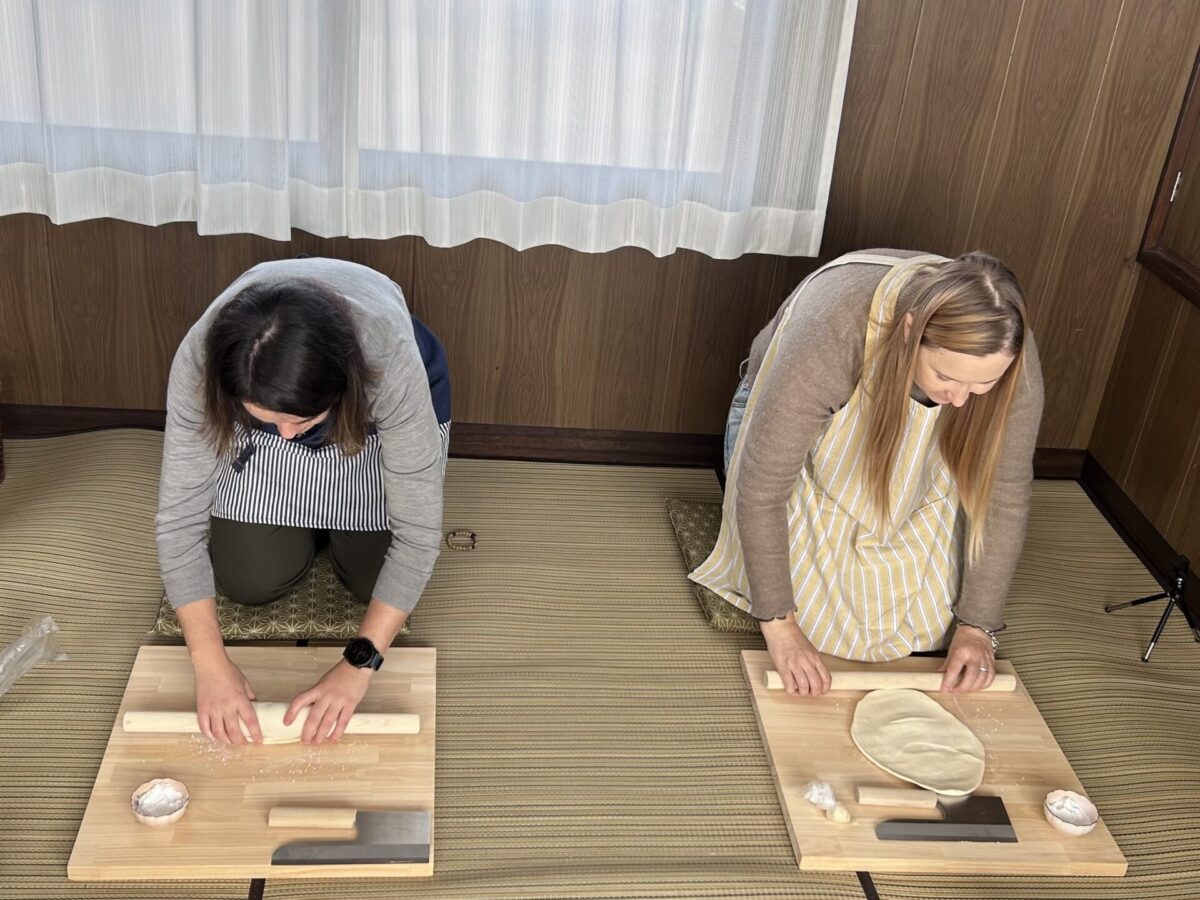
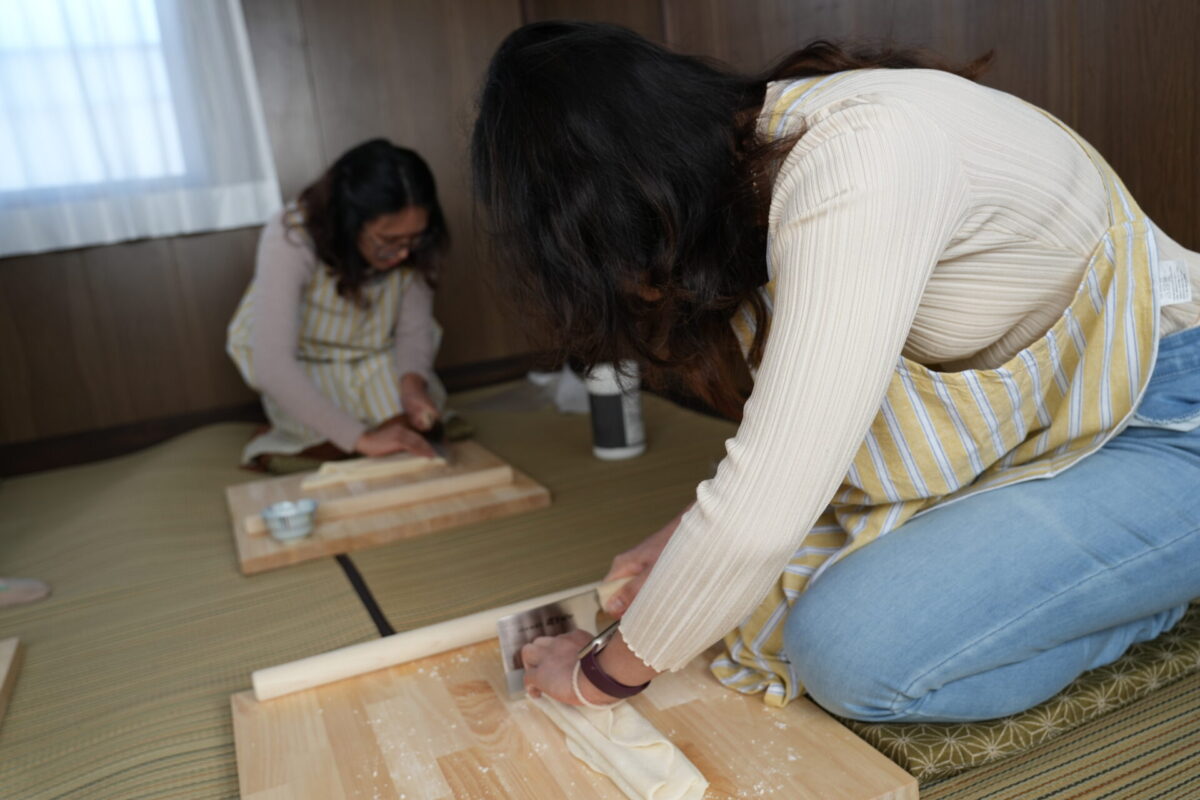
Next, the dough is dusted with potato starch, stretched until it is about 30cm wide and 5mm thick with rolling pins, and lastly cut to 5mm wide to create the individual strands. The whole process takes about one hour.
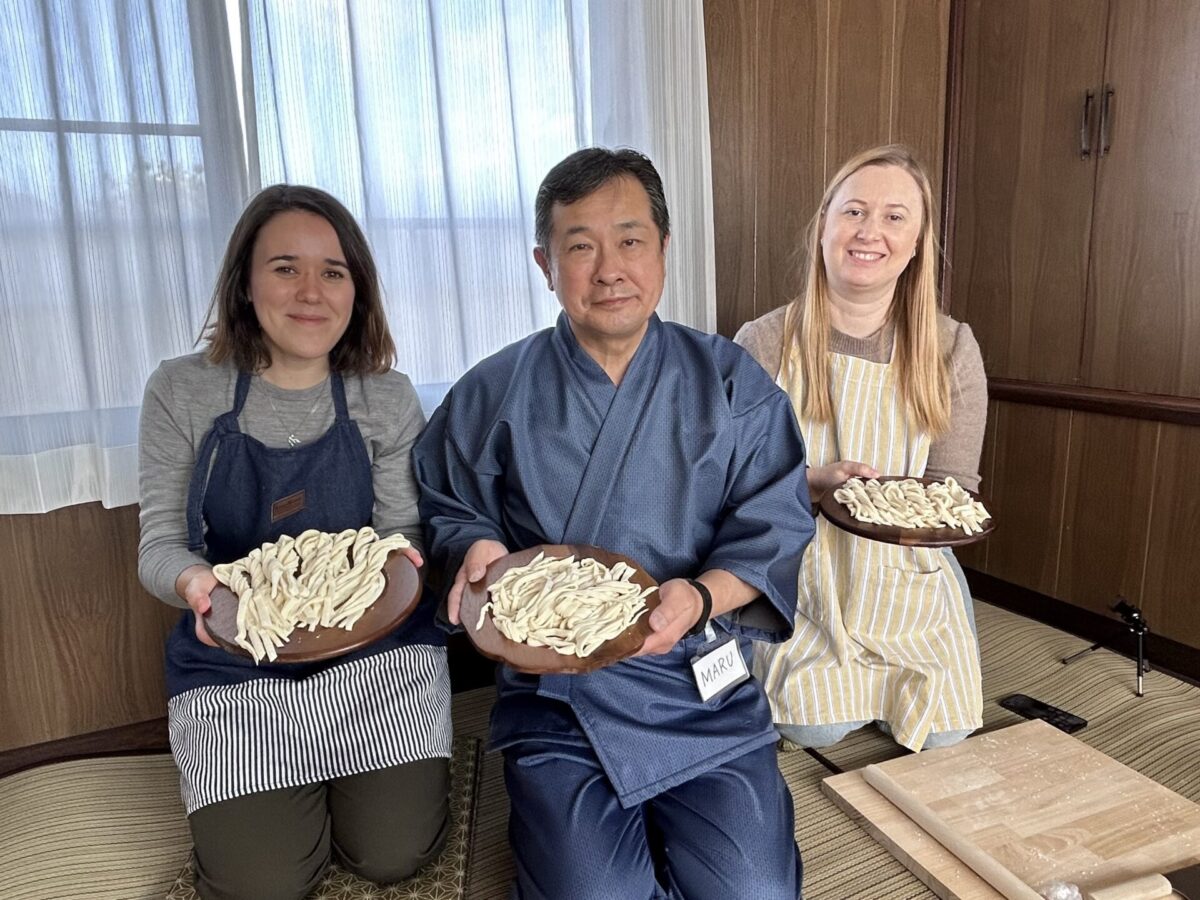
Next Step: Taste the Udon Noodles!
Time to reap the benefits of your labor and enjoy the noodles! Surprisingly, the taste and texture will actually vary between each person even though they follow the same recipe as each person completes the process differently. It’s fun to see how the noodles vary from you and other participants.
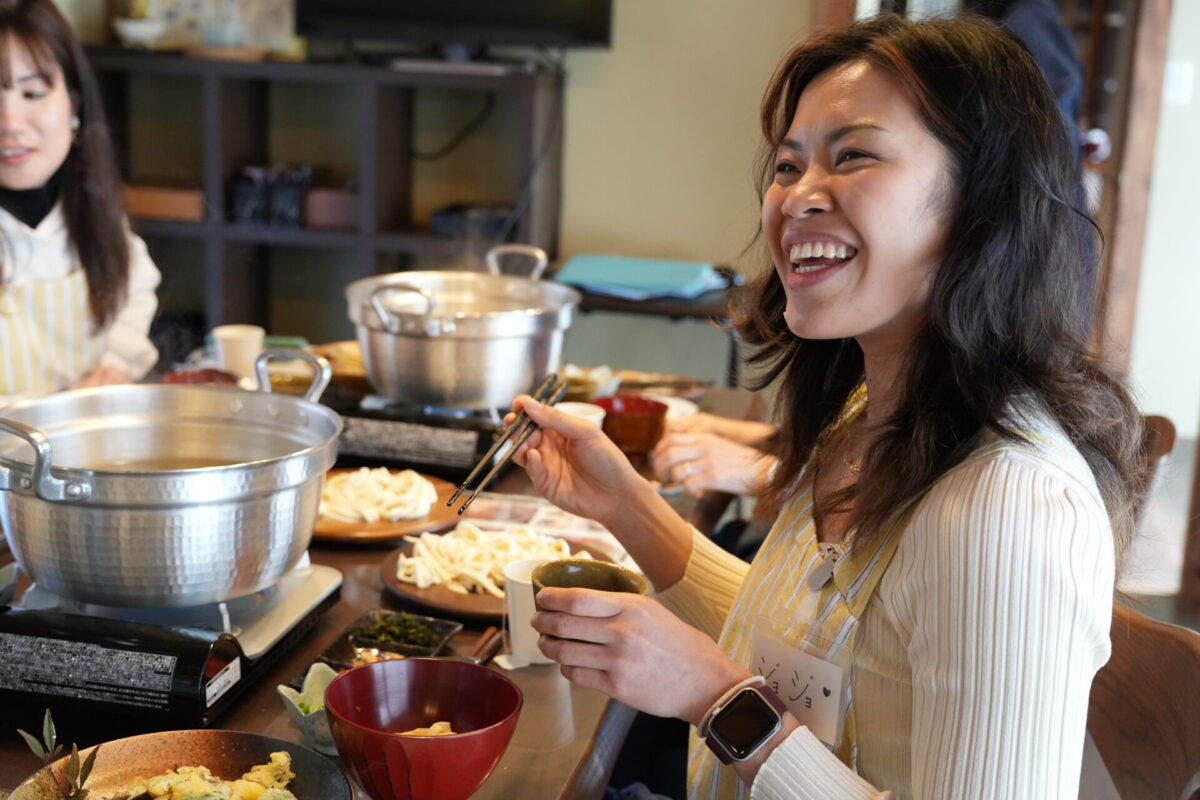
The noodles are lightly boiled in water and served with a simple soy sauce-based dipping sauce, resembling “shabu-shabu,” a hot pot-style meal. The soup broth is made from kelp, so it is safe for vegans and vegetarians to eat. It’s also served with a side dish of tempura using vegetables from Maru farms as well as other local farmers. The fresh taste of the vegetables is incredibly nourishing!
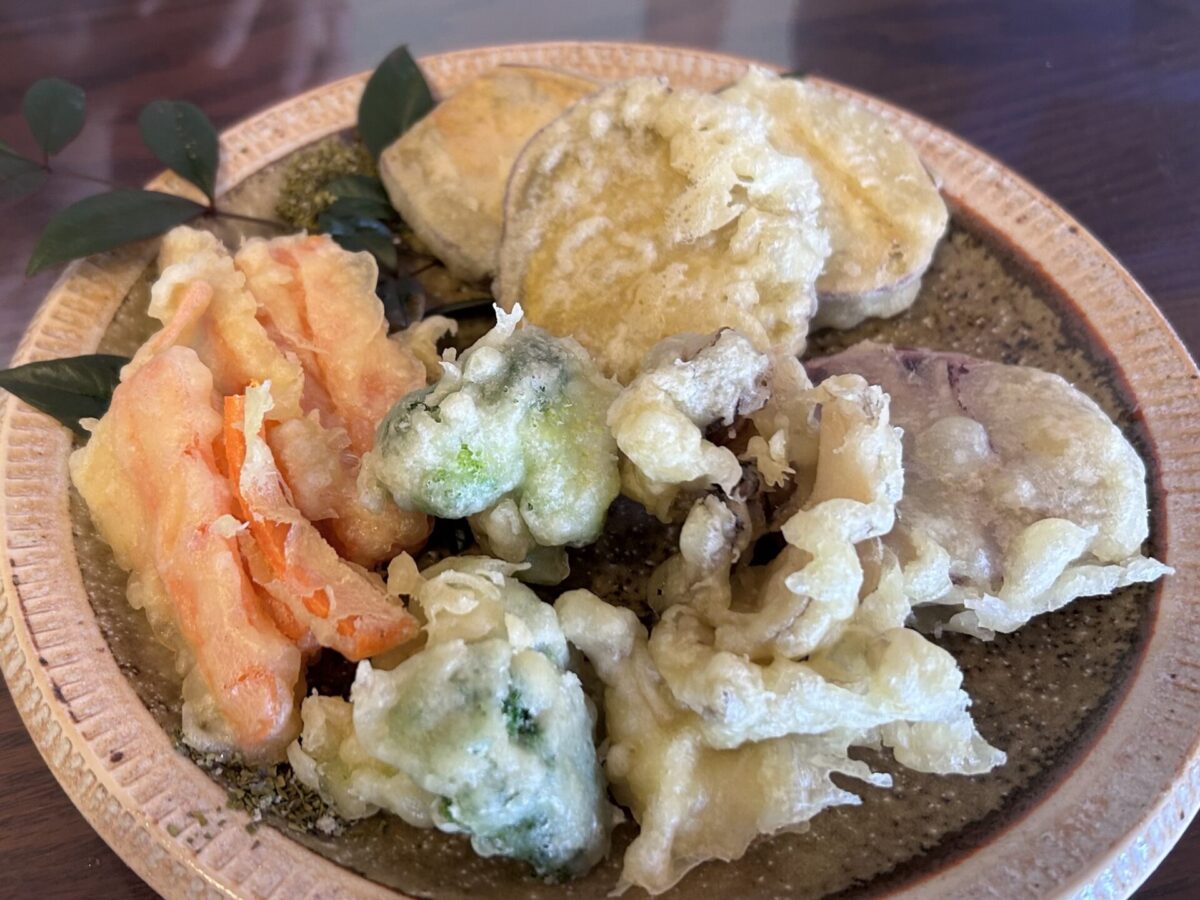
Making Vegetable Desserts
Didn’t get enough vegetables? Well, you’ll be happy to know that you’ll have the opportunity to make a vegetable dessert! A sommelier guide will join you and instruct you to make a tasty dessert using seasonal vegetables. The options will follow what vegetable is in season! An example is pumpkin cream with rice cakes.
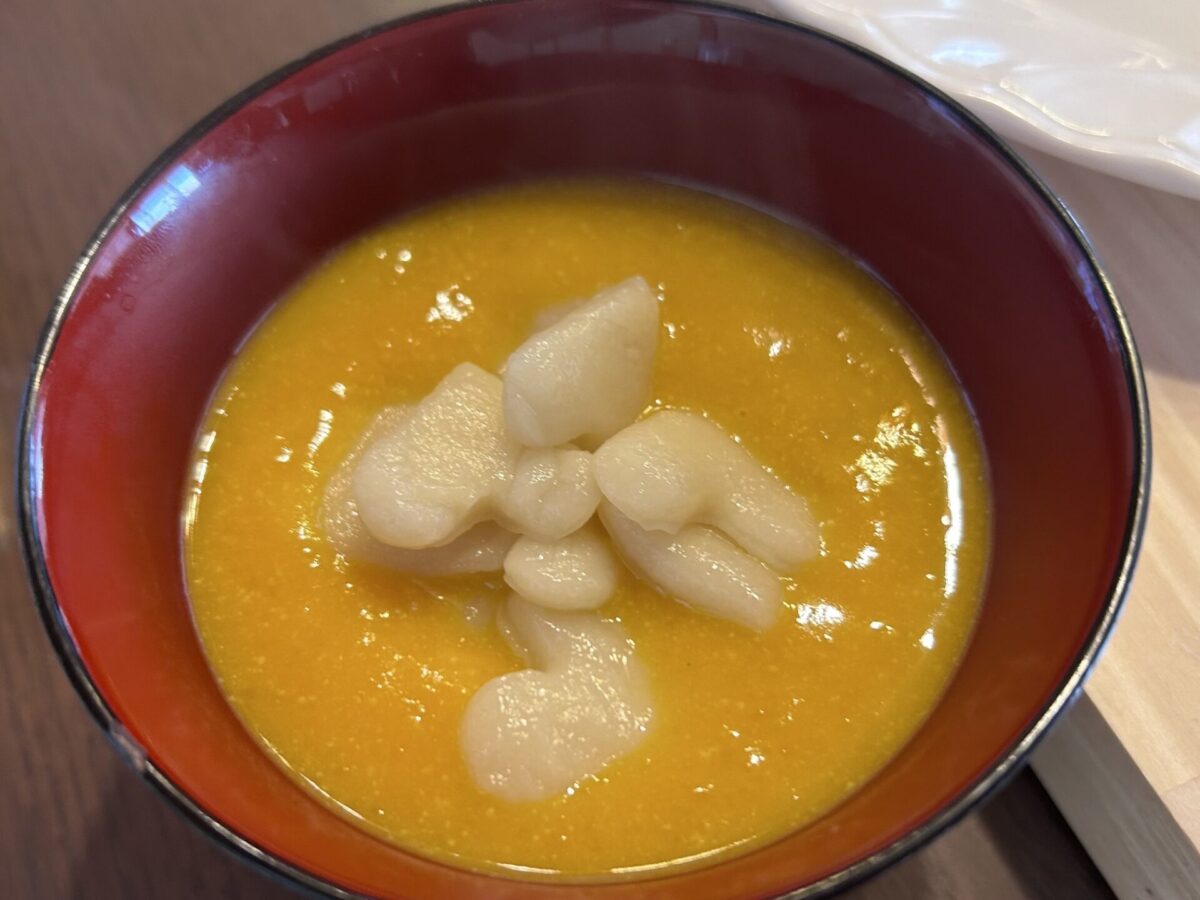
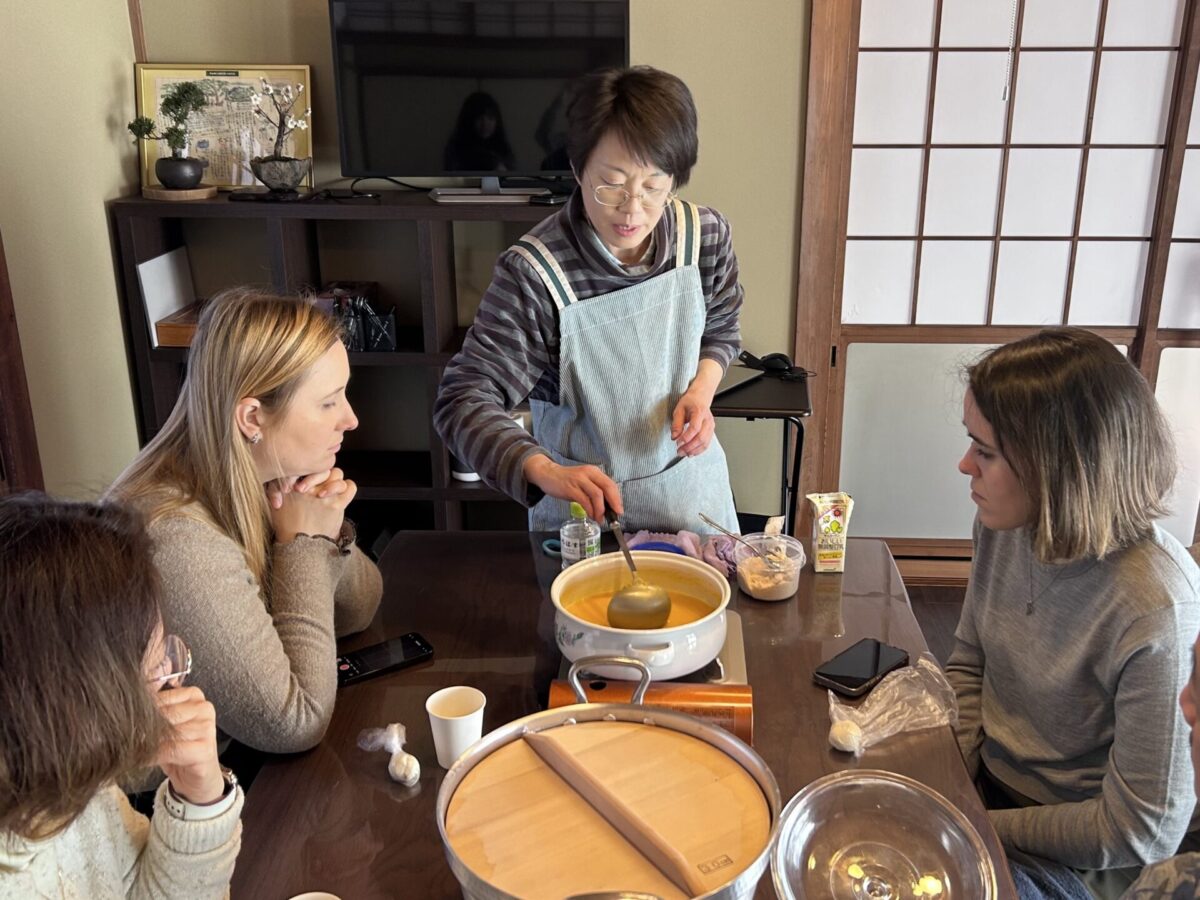
After this immersive experience, you’ll have no problem making this simple yet delicious meal at home. If this sounds like the best way to spend a day from Tokyo, then be sure to check the link below and book!

